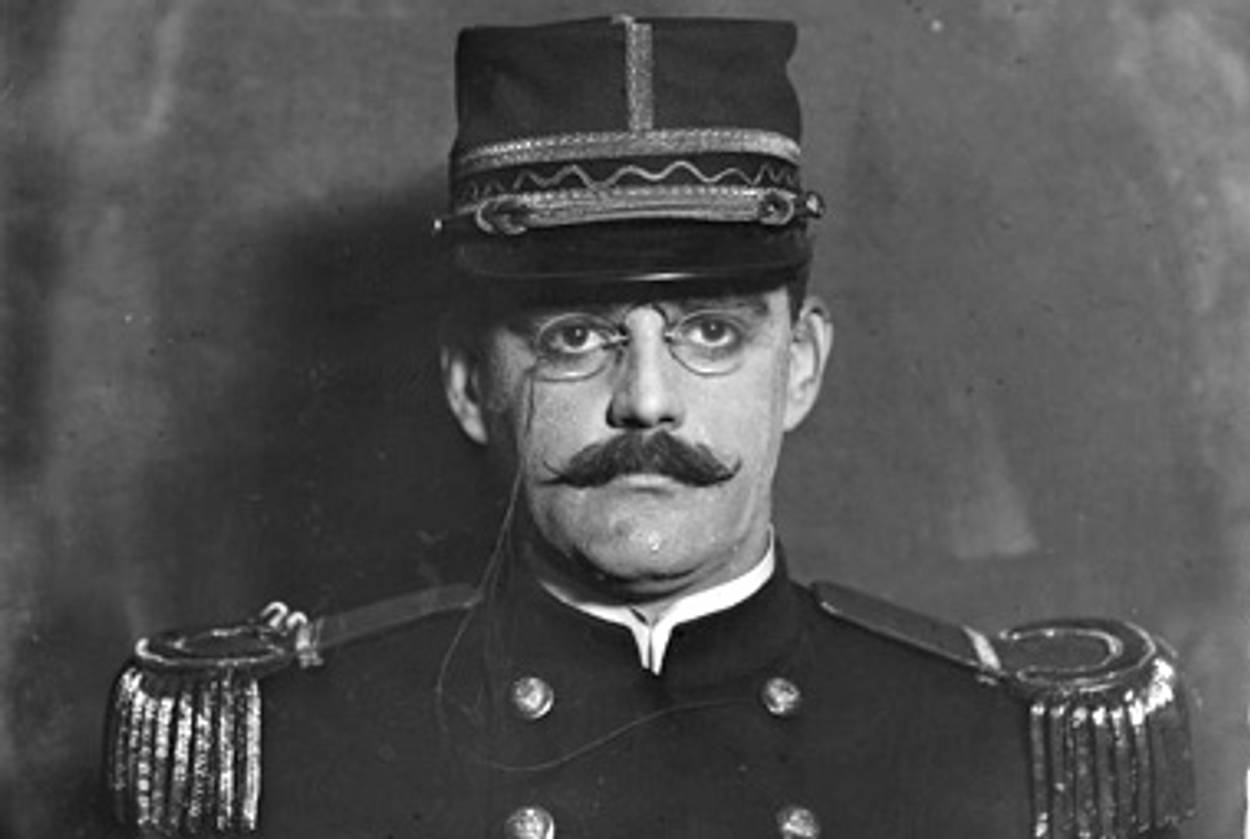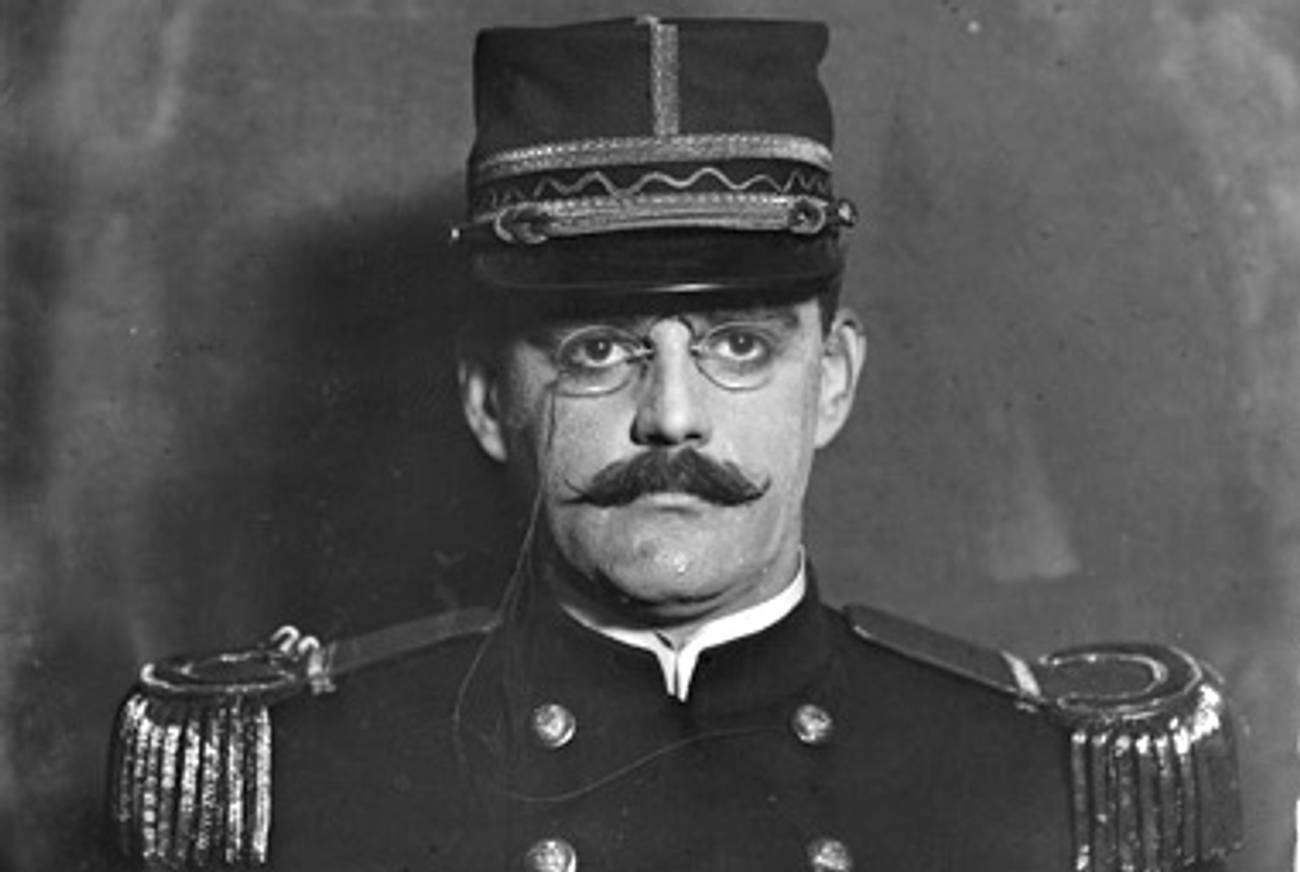Continental Divide
A new book positions the Dreyfus Affair amid a broad array of cultural clashes




In 1992, at the Republican National Convention, Patrick Buchanan gave one of the most poisonous political speeches of our era. Buchanan, who had run against President Bush as a protest candidate in the Republican primaries, was in Houston to endorse Bush against Bill Clinton in the general election. But the grounds for his endorsement went far deeper than the usual political issues. In a phrase that was to become infamous, Buchanan set Bush against Clinton as antagonists in a “cultural war”:
My friends, this election is about much more than who gets what. It is about who we are. It is about what we believe. It is about what we stand for as Americans. There is a religious war going on in our country for the soul of America. It is a cultural war, as critical to the kind of nation we will one day be as was the Cold War itself. And in that struggle for the soul of America, Clinton and Clinton are on the other side, and George Bush is on our side.
This kind of rhetoric, most commentators believe, helped to lose the 1992 election for the Republicans. And a good thing, too; for, whatever your party allegiance, there can be no mistaking the dangerously anti-democratic tendency of Buchanan’s metaphor. Politics is a matter of debate and compromise, but wars involve destruction and conquest, and “religious war” is the most savage kind of all. When politics ceases to be about “who gets what” and becomes an existential ordeal, a means of defining “who we are,” liberal democracy is in danger. And historically, the group that suffers first and most from the attack on liberal democracy has been the Jews. When a nation wants to proclaim “who we are,” it needs to be able to point to who it is not, and the Jews have always been the Christian West’s closest, most available Other.
Frederick Brown, the eminent historian and biographer of Flaubert and Zola, must have had Buchanan’s speech in mind when he titled his new book For the Soul of France: Culture Wars in the Age of Dreyfus. Despite the best efforts of Buchanan and his ideological heirs, America, thankfully, has never known the convulsions of a real, open, uncompromising culture war. If you want to know what that looks like, Brown seems to say, just look at France in the last decades of the 19th century—the era that culminated in the Dreyfus Affair.
Alfred Dreyfus, of course, was the Jewish army captain who was convicted in 1894 of selling French military secrets to Germany. But the years-long Dreyfus Affair, which Brown summarizes in the last section of his book, was more than just a miscarriage of justice—the miserably common story of an innocent man sent to prison. What made it a historical phenomenon, and a dire forecast of what would happen in Europe in the 20th century, was the way it revealed the deep hostility of millions of Frenchmen toward enlightened ideals of secularism, tolerance, and legal equality.
The really alarming thing about the Dreyfus case, Brown shows, is that the more apparent it became that Dreyfus had been wrongly convicted—and then, when the verdict was challenged, elaborately framed—the more insistently the French right wanted him punished. That is because admitting Dreyfus’s innocence would have meant acknowledging that top-ranking officers in the French Army—the bastion of the nation’s honor, and the preserve of conservative, Catholic, and monarchist forces—were guilty of spectacular injustices, including the forging of documents, the coercion of juries, and even complicity with the actual traitor who committed the crime for which Dreyfus was blamed. And to criticize the Army, its leaders said, was to endanger the nation: “What do you want this army to become on the day of danger, which may be closer than you think?” one general railed. “What do you want the poor soldiers to do, who will be led into battle by leaders discredited in their eyes?”
In this way, Dreyfus’s guilt ceased to be a question of fact and became a litmus test for ideology. Those who believed in it, the anti-Dreyfusards, considered themselves the “real” Frenchmen, while those who challenged it, the Dreyfusards, were painted as cosmopolitans, traitors, and pawns of a Jewish conspiracy. For it was Dreyfus’s Jewishness, all along, that was his real crime, or at least the piece of evidence that made his criminality believable. At his court-martial, the prosecutor stuck to insinuations about Dreyfus’s “supple, even obsequious character” and his suspicious knowledge of foreign languages (he was a native of German-speaking Alsace). The Catholic and right-wing press was not so subtle: “Our society has already been punished, but its suffering is not at an end,” wrote a priest in one extremist paper. “Our treasures, our banks, our papers, our railroads and our army are caught in the spiderweb of Judaism.” Edouard Drumont, the dean of French anti-Semites and editor of the rabidly Jew-hating newspaper La Libre Parole, was elected to Parliament in 1898, at the height of the Affair, under the slogan “Mort aux Juifs.”
Most shocking of all, perhaps, is the evidence Brown uses to reveal the state of mind of ordinary Frenchmen. One of the most despicable figures in the Affair was Colonel Henry, the intelligence staff officer who forged evidence to support the Army’s weak case against Dreyfus. When his forgeries were exposed, Henry committed suicide in his jail cell; but as Brown writes, this didn’t stop him from becoming a hero to the anti-Dreyfusards, “a would-be savior out of whose mortal wound flowed blood for a ritual of tribal self-affirmation.” La Libre Parole solicited donations for Henry’s widow, and readers sent messages along with their contributions. Brown quotes from these in a footnote: “From a cook who would rejoice in roasting Yids in her oven”; “Two francs to buy a round of drinks for the troopers who will shoot Dreyfus … and all the kikes.” From this to the world of Hitler’s willing executioners does not seem like a big step.
To understand how matters could have reached such a point in France, the birthplace of the Rights of Man, Brown begins his book some three decades before the Dreyfus Affair, with the Franco-Prussian War of 1870-1. The defeat of France in that war, followed by the radical uprising of the Paris Commune and its bloody suppression, left deep wounds in the French body politic. The Third Republic, which took shape in the early 1870s, was the heir to defeat and rebellion, and just as with Germany’s Weimar Republic after World War I, it never succeeded in convincing its die-hard foes of its legitimacy. Monarchists might well have succeeded in making a France a kingdom, if they hadn’t had two rival princes to deal with. Catholics were bitterly opposed to the secularizing policies of the Republic, in particular its attempt to bar clergy from being teachers. And the Army was eager for revanche, a war of revenge against the Germans, in order to reclaim the lost provinces of Alsace and Lorraine.
These anti-Republican forces, Brown shows, were at the heart of the anti-Dreyfus movement. But well before Dreyfus, they had already challenged French society on many occasions. Some were symbolic, as when the church of Sacré-Coeur was built in Paris, in 1875, as a sign of the nation’s repentance for its sins against God and the Church. (Anticlerical forces rejoiced when the Eiffel Tower went up 14 years later, as a kind of modernist rebuttal to Sacré-Coeur.) Others were deadly earnest: in 1889, as Brown shows in a detailed chapter, a general named Georges Boulanger came within a hair’s-breadth of overthrowing the Republic and establishing a military dictatorship.
Many of the Third Republic’s wounds were self-inflicted, however. Constant political crises, intense partisanship, and systematic corruption helped to discredit the very idea of parliamentary government. Especially damaging were two major financial scandals—the collapse of the Union Générale in 1882, and that of the Panama Canal Company in 1889. (Brown devotes a chapter to each.) Imagine the Bernie Madoff affair fused with the Lehman Brothers bankruptcy, and you get some sense of how devastating these frauds were to France’s economy and morale.
The Panama scandal, in particular, helped to fuel right-wing anti-Semitism, when it was revealed that two German-Jewish financiers, Jacques de Reinach and Cornelius Herz, had helped engineer the fraud and bribed a number of politicians. It was in the wake of Panama that Drumont launched La Libre Parole, capitalizing on popular hatred of Reinach and Herz to promote the doctrine of modern, racial anti-Semitism. “These people have differently configured brains; their evolution has not been ours; and everything about them is exceptional and bizarre,” Drumont wrote about the Jews. “The Crash, the sensational event, the financial killing … are their natural event.”
After reading Brown’s history of this extended “culture war,” the Dreyfus Affair no longer looks like such an anomaly. Instead, it seems inevitable, a crystallization of all the tensions that had made “the soul of France” a battleground for years. Perhaps it is more surprising that, in the end, the Dreyfusards won and justice prevailed. Thanks to advocates like Emile Zola, the fact of Alfred Dreyfus’s innocence was established, and after five years in prison on a remote island, he received a pardon. The Third Republic was vindicated and would survive until the German invasion of 1940—it is still, in fact, the longest-lasting French regime since the Revolution of 1789. But the dark forces the Affair revealed, and that Frederick Brown masterfully evokes, did not disappear. They only went underground—to reemerge, with fatal consequences, in the Vichy years.
Adam Kirsch is a poet and literary critic, whose books include The People and the Books: 18 Classics of Jewish Literature.
Adam Kirsch is a poet and literary critic, whose books include The People and the Books: 18 Classics of Jewish Literature.